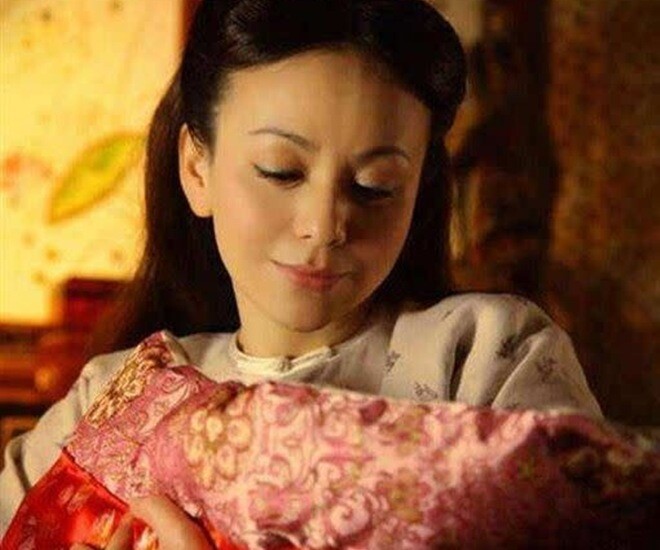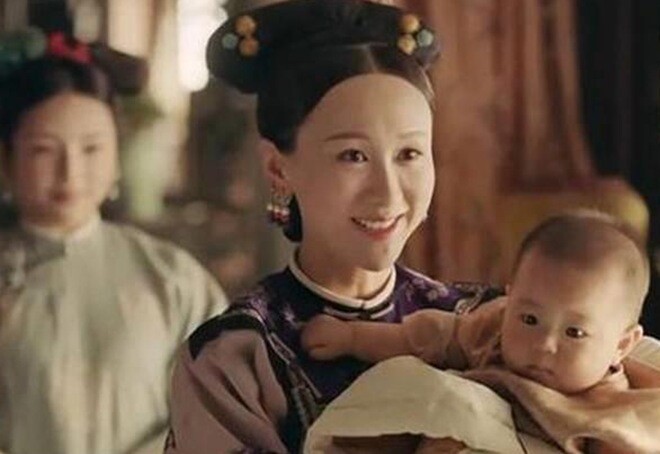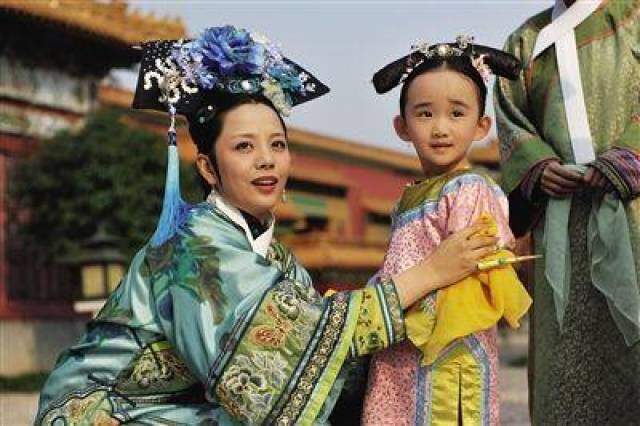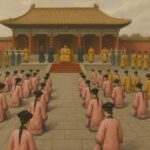The newly-born child was taken away from them, and they endured many other humiliations throughout the child’s upbringing.

Illustrative image
The child was taken away at birth, and the mother was not allowed to breastfeed.
During the Qing Dynasty, the Emperor had thousands of “concubines,” with the Empress at the top, followed by noble consorts, consorts, noble ladies, and so on (according to the Qing Dynasty’s ranking system for consorts).
As soon as a consort gave birth, the child, whether a prince or princess, would be taken away by the court and given to someone of higher rank, such as the Empress or other consorts of higher status, to be raised.
The mother who had just given birth—a consort of low rank recruited into the palace solely for the purpose of bearing children—was not permitted to care for her own child.

Illustrative image
This meant that breastfeeding was absolutely forbidden. Even if a mother’s milk was flowing and soaking her clothes, she was not allowed to breastfeed her own child, as this was considered necessary to maintain the dignity and image of the imperial family.
Instead, the wet nurses in the palace—commoners who had also just given birth but had to leave their own infants at home—were responsible for breastfeeding and caring for the young princes and princesses every day.
One of the reasons for this practice was the belief that if the biological mother raised her children, they might not receive the best education, development, and advancement opportunities.

Illustrative image
Giving birth did not improve their status.
Another reason why the consorts, the mothers, were not allowed to breastfeed was the belief that breastfeeding would change their figure, beauty, and even give off a “milk scent” that was unusual compared to that of a maiden.
This could potentially lead to the Emperor’s disgust and even fear, resulting in the mother falling out of favor.
Moreover, while for most mothers, their children could be considered a “weapon” to solidify their position in their husband’s heart, this was not the case for Qing Dynasty consorts.
Even if they gave birth to a son, there was no guarantee of special favor. The Emperor had many consorts, and it was not uncommon for them to bear sons. Additionally, whether or not that son would become the crown prince was a matter for the future. Therefore, giving birth to a son did not necessarily secure the consort’s current position.

Illustrative image
Undoubtedly, the Emperor, with his numerous consorts, would prefer a beautiful and carefree wife over one who devoted herself solely to motherhood.
Furthermore, another issue was political in nature. When a consort nursed and raised a prince or princess, they naturally formed a bond. After the Emperor’s death, if the new Emperor favored his mother’s clan, it could threaten the power of the imperial family and challenge the new Emperor’s authority.
This was not just a hypothetical situation but a lesson learned from history. During the reign of Emperor Wu of the Han Dynasty, he was raised by his biological mother, Wang Empress. Naturally, after he ascended the throne, Wang Empress became the Empress Dowager, and she supported her younger brother, Tian Fen, in becoming the prime minister. This disrupted the balance of power in the court and even threatened Emperor Wu’s authority.

Illustrative image
This historical event served as a cautionary tale, leading the Qing Dynasty court to be even more strict in prohibiting consorts from directly raising their own children.
Why Did Royal Concubines Not Breastfeed Their Children? The Surprising Reason in Feudal Times
“Few are aware that the Ming Dynasty established an official institution called the ‘House of Wet Nurses’, dedicated to selecting married women aged 15 to 20 to nurture the imperial princes. This unique institution sheds light on the dynasty’s approach to childcare and the role of women in this era.”
The Forbidden City’s Secrets: Why Were Qing Dynasty Consorts Required to Remain Silent During Imperial Consummation?
“The intro paragraph you provided delves into an intriguing aspect of Qing Dynasty culture: a rule that mandated silence from imperial consorts during intimate moments with the emperor. This intriguing tradition warrants further exploration, as it offers a glimpse into the unique dynamics and protocols of imperial China’s royal harem.”



































